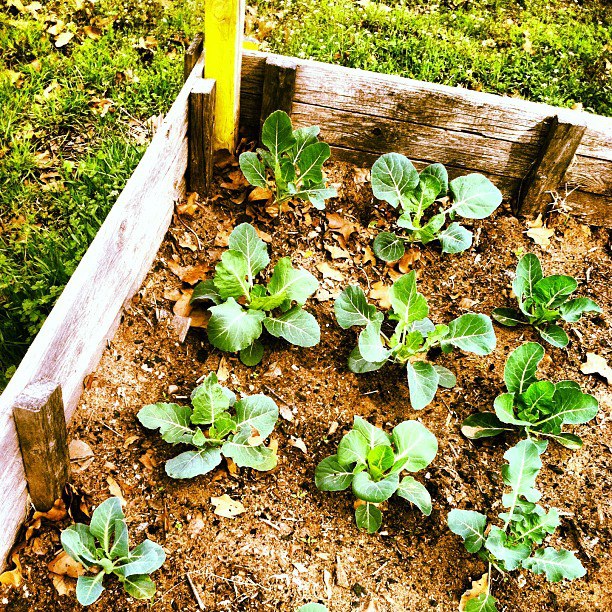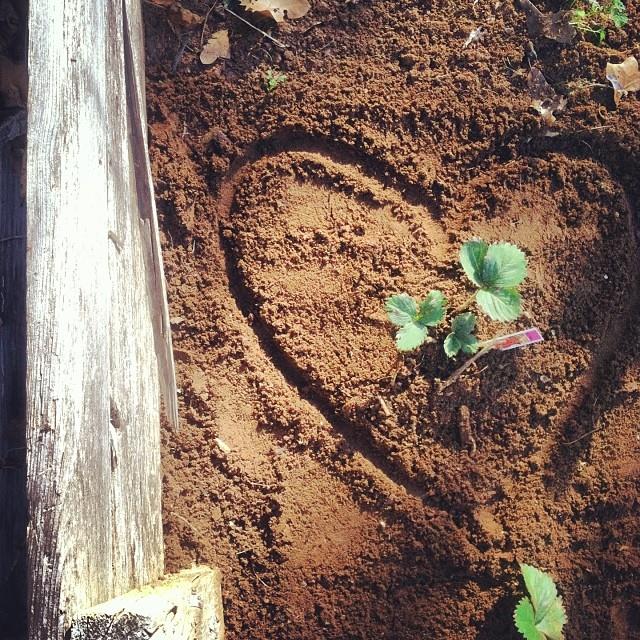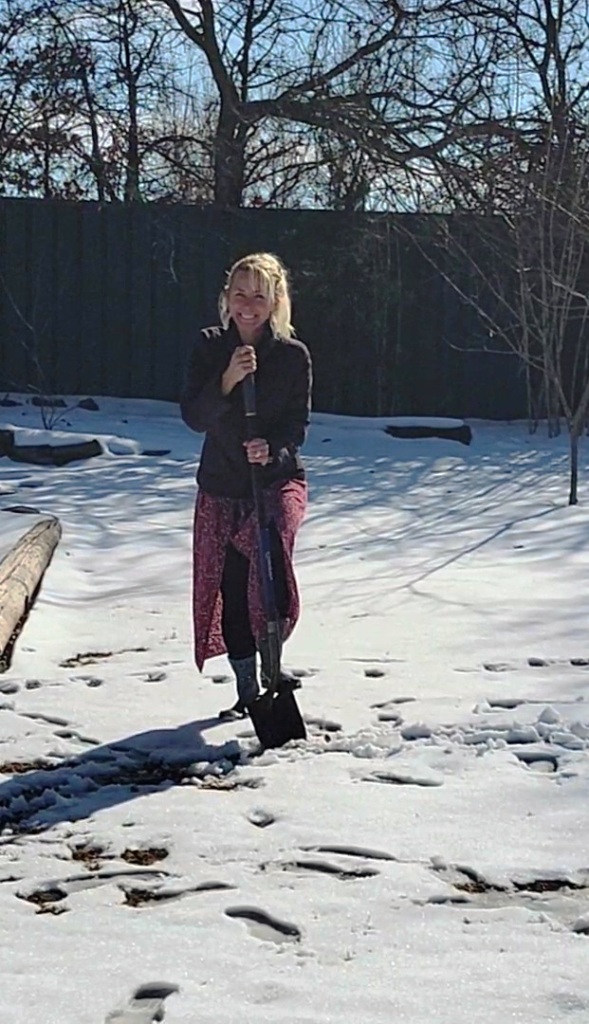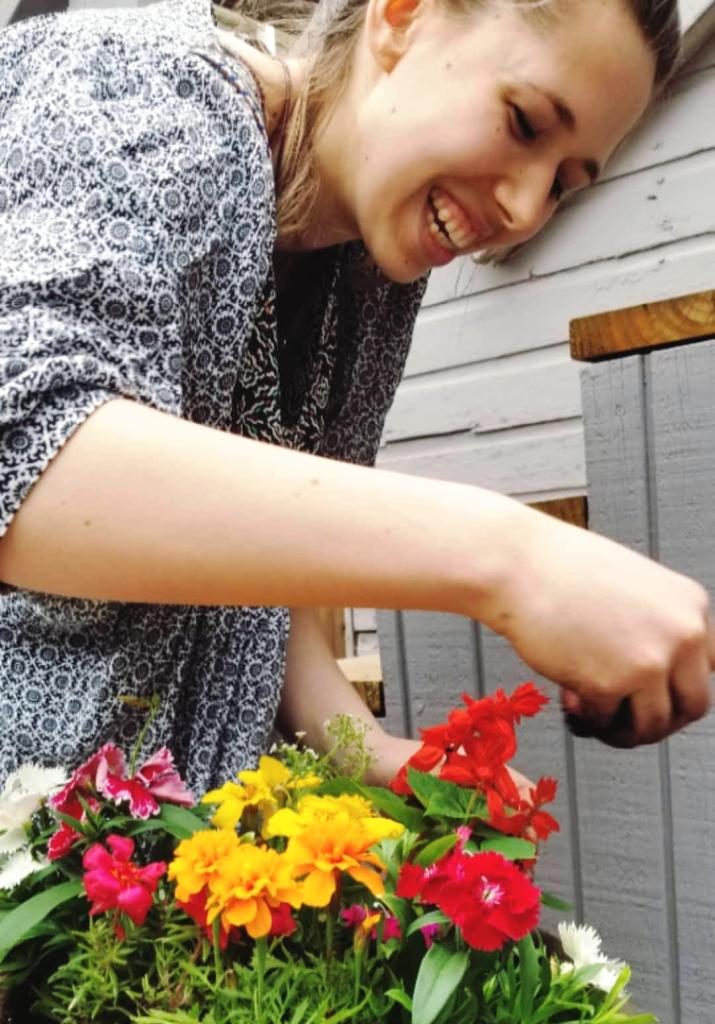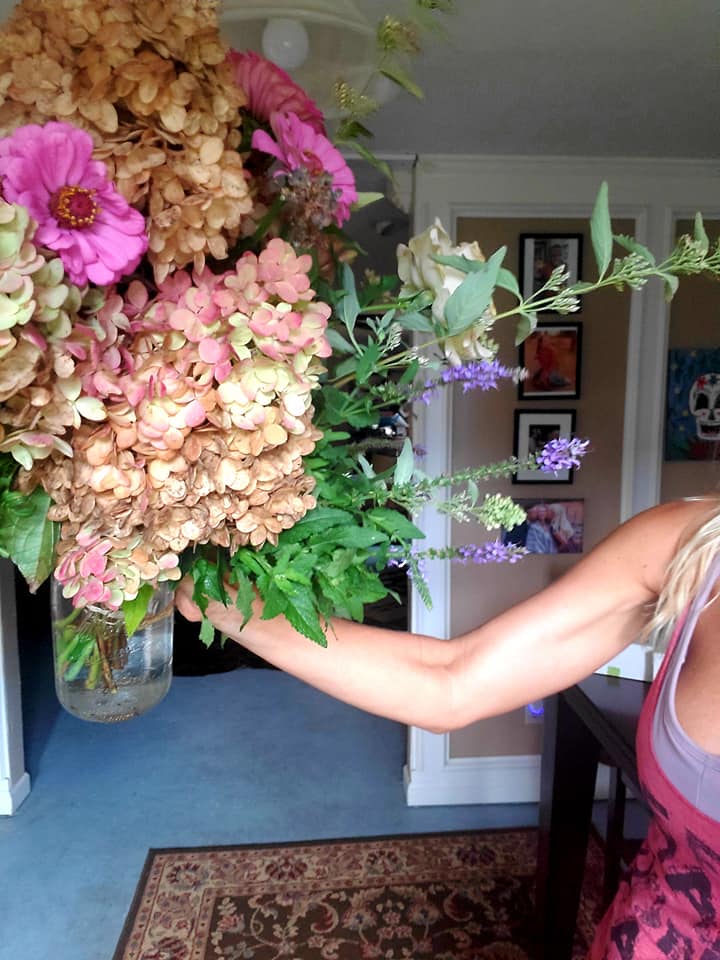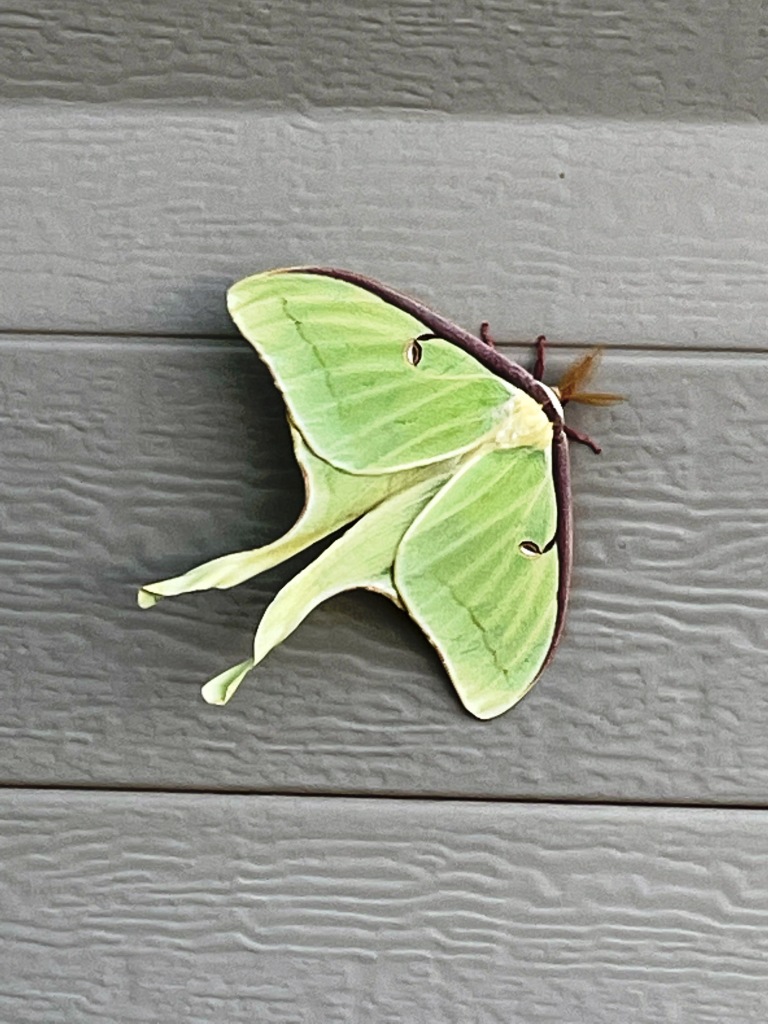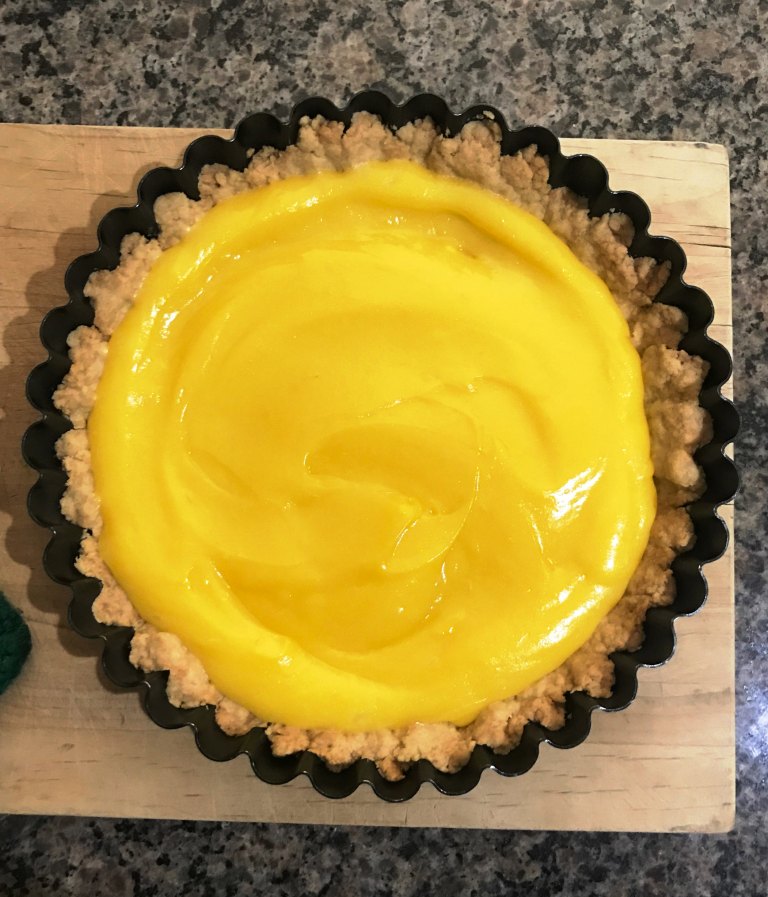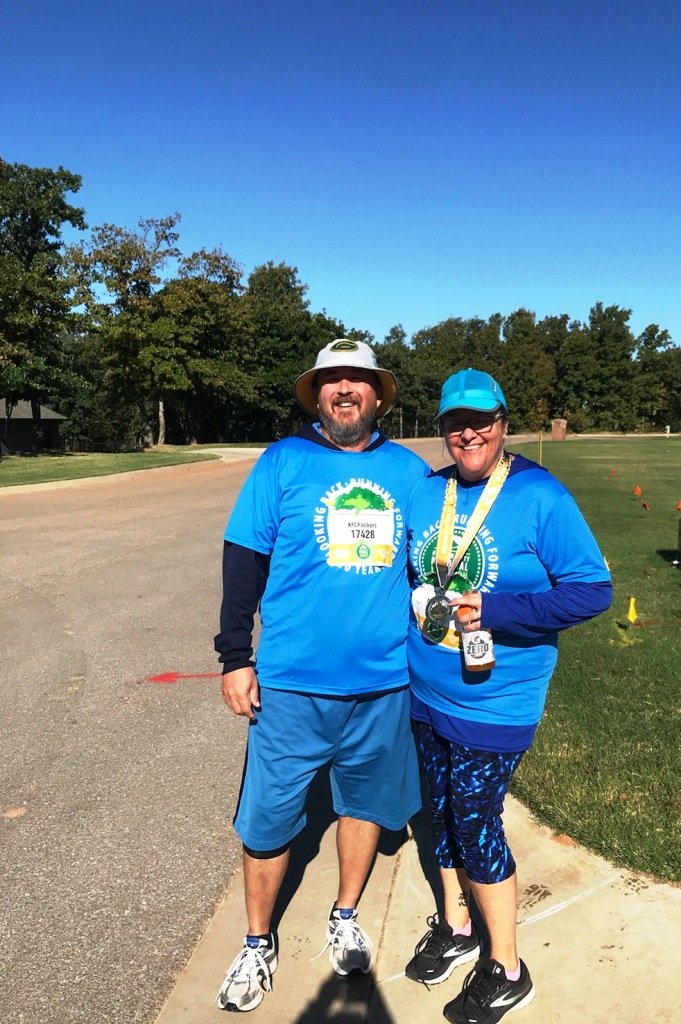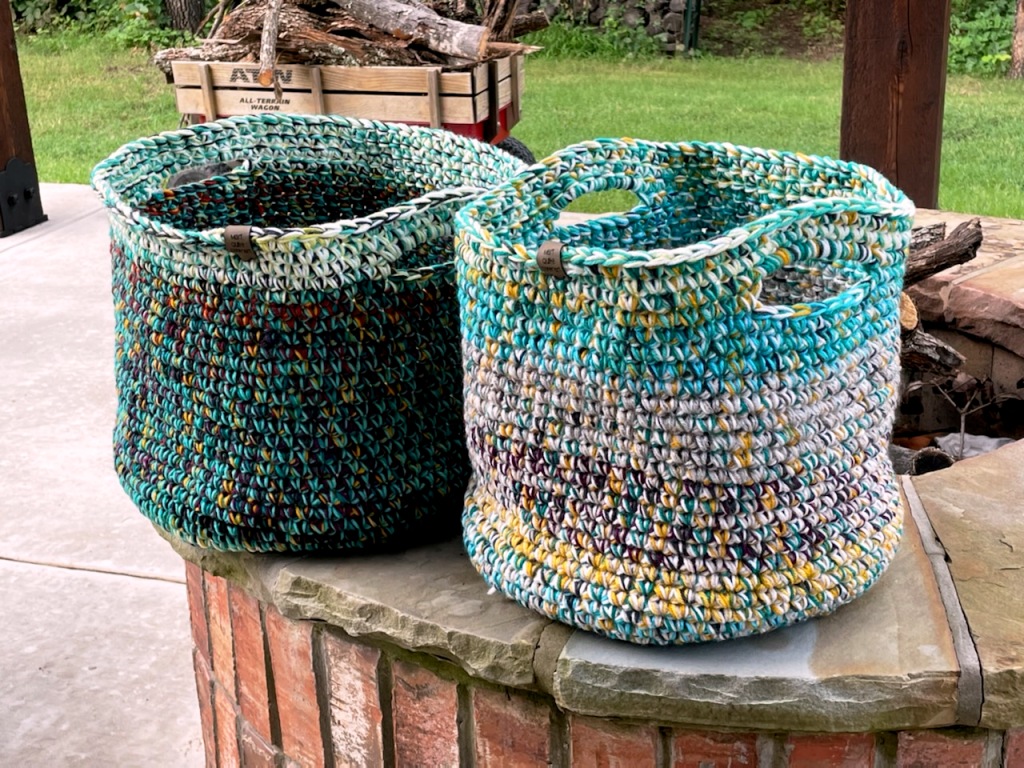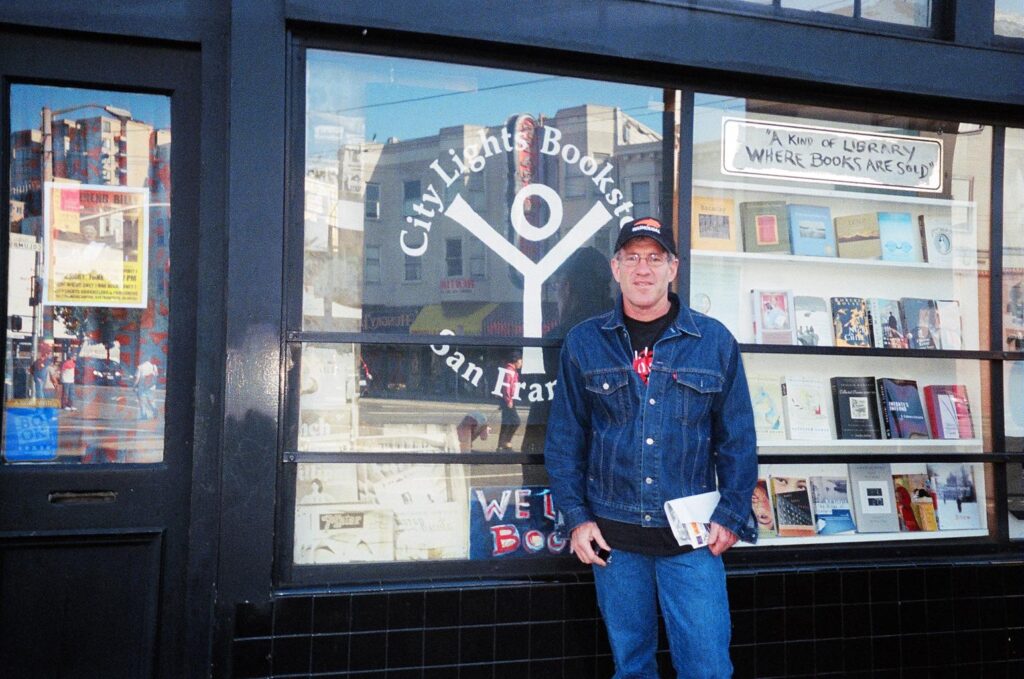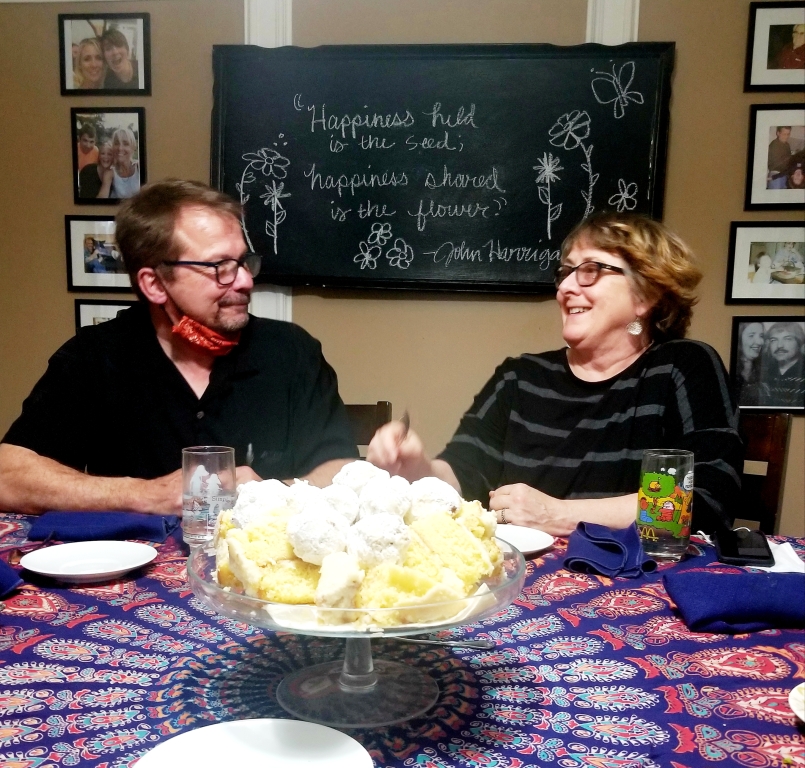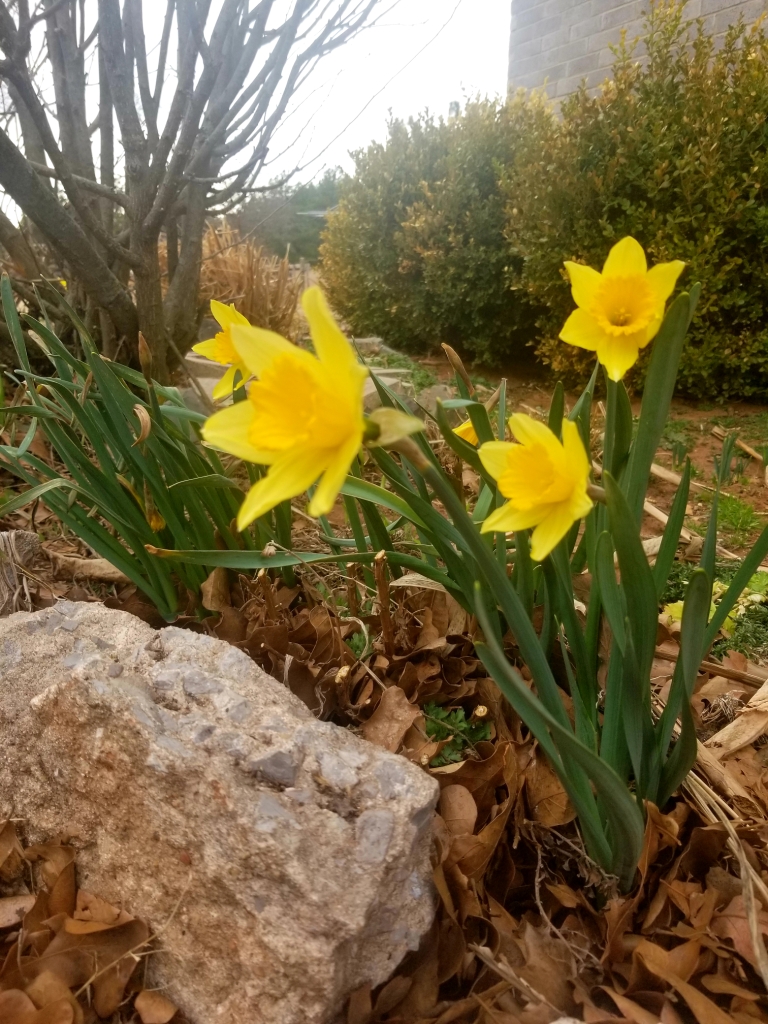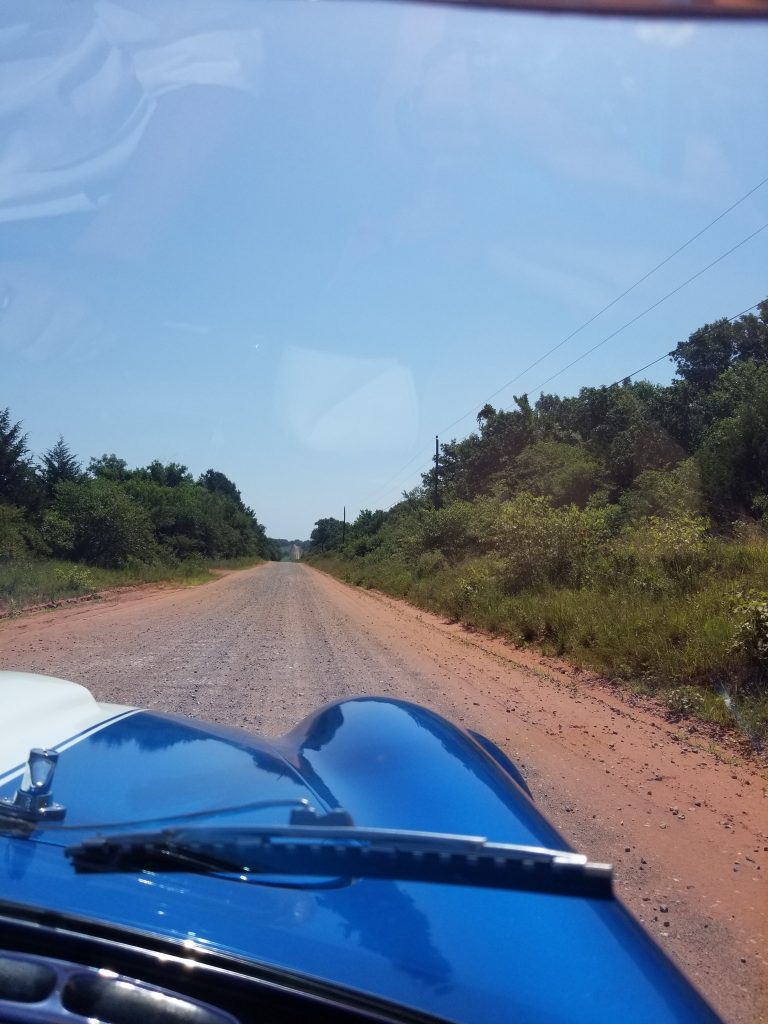Hey friends! I’d like to share with you my thoughts on the shortest, sweetest, and actually most inspiring little gardening book ever. My long distance bibliophile friend Brittany sent it to me toward the end of Pandemic; but sadly it, it being so diminuitive and me being so aahhhhh, it got lost in the choas of the Apartment. I unearthed it last week while doing a deep clean and was drawn in all over again by the cover art and title: How to Grow Food, A Wartime Guide.

Originally published in 1940, it was reprised 2012 and I have read it at exactly the right time for my soul, as these things tend to happen. Are we at war this minute? Maybe not explicitly. But spiritually and socially, kind of. And as far as supply chains and economies are concerned, sure. So let’s grow food and lots of it and have a great time while doing so.
Okay. 1940, Great Britain. The book is written in a narration style, with a calm, tongue in cheek cadence and light touch of humor, despite frequent mentions of Hitler, food rations, refugees, and guesses about how long “this new war” will last. The narrator kind of oversees the fledgling growing adventures of Mr. and Mrs. B, who are British city dwellers recently transplanted to the countryside, in the wake of the first World War. Mr. and Mrs. B. are visited and haphazardly mentored by the only other character in the book, the “Weatherbeaten Lady,” who is eventually identitfied simply as W.L. She is the local countrywoman who knows everything worth knowing about gardening, and she is the opposite of shy about imparting her knowledge to her new and very inexperienced countryside neighbors.
The book is barely 80 pages long, so it’s a quick and delicious little read. Practically a weekday blog post in my world, ha! And each section is as fun as it is useful. Only a few bits of advice seem to not have stood the test of time. One example is the use of cyanide to elminate wasp nests. I’m not even kidding. And the old practice of “double digging” a new seed bed, while not completely out of fashion, is now hotly contested by the no-dig approach made popular by Ruth Stout and Charles Dowding. Eveything else, in my humble opion, can be accepted as at least an old practice worth trying. It’s a sweet and casual collection of old wives’ tales, good habits, and rules of green thumb. Overall, I really liked the October-to-September conversation about how best to grapple with the seasonal rhythms. I have long thought that gardening literature gets super granular way before it first offers a digestible overview of how to just look at your garden. How to strategize. How to see what is possible in your space and how to maximize your unique opportunities. This tiny little book provides some thought stimulus that most gardening books lack.
Here are some short passages I found especially sweet:
“This little book is not intended to teach the farmer or market-gardener his business. It is for those who have never grown food before, either because they have had no gardens, or because, being possessed of gardens, they have grown nothing but flowers.” This is followed by a long passage about the call to become a more “useful” gardener, ha!
“Now that the country is at war… poverty is not the point. Nourishment is the point. Whether one has money or not, it is possible that on some days of the week one will not be able to buy enough food to fill the inner man. But with a garden of vegetables, one will be able to get over the difficulties of distribution that seem to afflict the Government’s well-laid plans for feeding the multitudes.”
(In a paragrah about combating the stress of being stuck at home during a war, which absolutely reminded me of most people’s Pandemic experience…) “…to counteract states of mind, from whatever cause, there is nothing like gardening. It matters not whether the object of one’s labours is a parsnip or a penstemon, the work’s the thing.”
“…to work in the open air, at tasks which really need attention, is to diffuse thought and lull it, and at the same time to gain in physical well-being. It is impossible to be consistently unhappy while digging, planting, or weeding.”
Regarding the W.L.’s advice to Mrs. B. against well manicured and polished hands: “I never set up to be an authority on how to keep the hands lovely while holding down the job of gardener-of-all-work. I am content to keep clean. That’s easy enough. Earth isn’t dirty like oil or grease. Soap and water and a stiff nail-brush are all you need.”
Regarding the arrogant and untried Mr. B: “He studies how to dig. Not any fool can dig.”
And then the same man, after digging a while: “Why, in the first place, does one dig?” I found this turn of thought unreasonably funny.
After some rationalizing and slow learning, once the bones of their new garden have taken shape but they have admitted to not wanting flowers because flowers are not food, an epiphany: “Pretty? Mr. and Mrs. B, in a fervour of utilitarianism, had forgotten that the first duty of a garden is to feed the soul.”
Mr. B. is really falling in love with the practice now: “He thought of the grand rhythm of digging: strike, shove, heave, strike, shove, heave. He thought of the chocolate earth, that was so satisfyingly dirty in such an essentially clean way. He made plans for after the war.” Isn’t that relatable? The sense of being vaulted to a better future while tending the earth?
The narrator pauses to address the choice to begin this gardening story in October: “It may seem that I have begun my account of a gardener’s year at the wrong end: but I think not. The preparation is the real beginning of a garden: not the sowing.”
And a bit more about winter work: “There is little more they can do at the moment, so they busy themselves in collecting information and making additions to their calendar. They wish they had begun gardening last year.”
Much of the middle of the book is packed with specific and practical advice about actual planting practices, certain vegetables and what they like best, greenhouse tips, and more. There’s even a chapter about keeping livestock for the sake of the garden and food supply. I love the parts about farm compost. Here’s one about potting soil: “The best people put their potting-soil through a garden-sieve; I work it and crumble it with my hands, merely because I like it.”
“March- Now we get busy.”
“But the thing which most exercises us in April is weeding.”
“June- Keep hoeing. Keep hoeing all summer.” Hoeing ain’t easy, friends. You know this.
A thought provoking insight about strategy, especially if your growing space is limited: “If the choice lies between small fruit and vegetables, and if the country is at war, the vegetables have it. Small fruit, however delicious, is not an essential of good diet.”
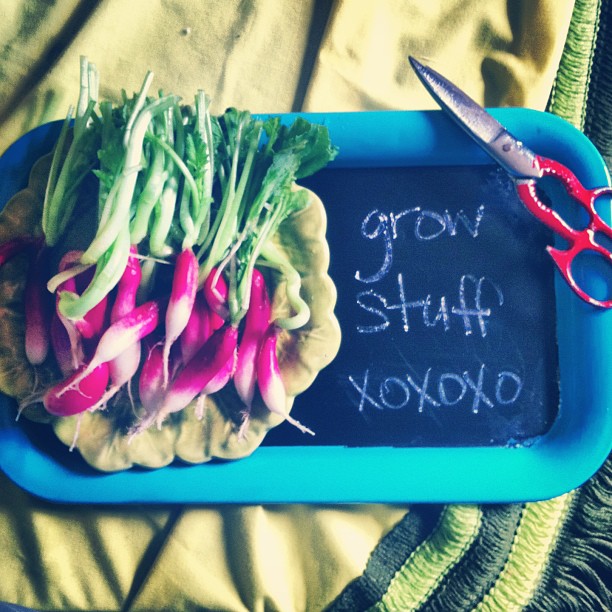
I want to be friends with W.L. and wonder if one day I will actually be her: “The W.L. smiles tolerantly, and the B.s feel that she is so full of superior knowledge that she could probably tell by scent where each crop had been. “ This was from a whole chapter about garden arrangement and crop rotation.
The early lesson about feeding the soul needed a few tries to really stick. In answer to W.L.’s offer of shared flowers, Mrs. B. says, ” ‘Oh I don’t think so- it’s very kind of you, but you see, we’re going to grow food.’ Patriotism and virtue exuded from her.”
Okay friends, I hope I have tempted you to find this sweet little thing and gobble it up. Do it after your circle everything you want in the seed catalogs but before you go outside and start digging. Read it knowing that Victory Gardens were exactly what made the difference for thousand and thousands (millions?) of people during WWII, and although our exact circumstances are thankfully very different now, some themes are repeating. A new kind of Victory Garden is called for. Do it. Dive on in with us. Grow some food and some flowers and find yourself your own Weatherbeaten Lady to mentor you, if you are not yet one yourself.
I barely wear sunscreen or polish my nails, so I can try to help if you want.
Happy Growing!!
XOXOXO

